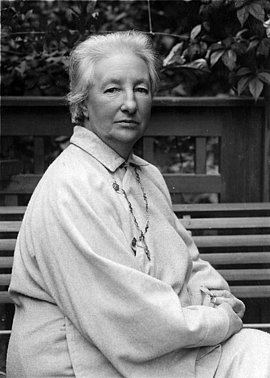Anita Augspurg
In the hope of promoting women’s right to vote, Anita Augspurg decided to study law in 1893. She enrolled at university in Zurich because women were not permitted access to legal faculties in the German Reich. She returned to her home of Munich as the first German woman lawyer. When the Bavarian Republic was proclaimed in Munich on November 8, 1918, and women’s suffrage was introduced in Bavaria, she was a member of the “revolutionary central worker’s council,” later the congress of councils, and worked with Kurt Eisner. In the subsequent years, Augspurg took a clear stand against the growing anti-Semitic terror and criticized the political situation in the monthly journal she published, Die Frau im Staat, and in other publications. Anita Augspurg and her partner Lida Gustava Heymann got an early taste of the National Socialists’ anti-Semitic agitation and violence in Munich. Public gatherings were deliberately attacked from 1920 on. After a particularly brutal incident in January 1923, in which a woman was severely injured, a women’s delegation also including the founder of the Catholic Women’s Association Ellen Ammann requested a meeting with the Bavarian interior minister Franz Schweyer (BVP). They asked him to expel the Austrian Adolf Hitler from the country. Their plea was not a success, however, and Hitler undertook his attempted putsch at the end of 1923. In the years that followed, Anita Augspurg was under constant attack as a Jew from the nationalist movement. The pacifist women’s movement was lamed by disruptions of events and violent assaults, along with an unprecedented hate campaign against its members. After the National Socialists took power, Anita Augspurg did not return from a 1933 trip abroad, so as to evade persecution by the new powers. In exile in Switzerland, Anita Augspurg and Lida Heymann struggled to earn a living through journalism and with the support of friends. “Condemned to silence” by the conditions of their refugee status, the last years of their lives were a time of great resignation.
